News + Articles
How to take care of your dental crowns
Dental crowns are more than a fix – they are investments in your smile’s future. With proper care, your crown will keep you smiling for years.

Here’s your simple guide to help care for a new dental crown.
How long do dental crowns last?
A dental crown can last 5 to 15 years with proper care. Yet, the lifespan of your dental crown depends on many factors.
These include the type of crown, your oral hygiene habits, and your lifestyle.
Ceramic crowns (Porcelain and all-porcelain crowns) are more robust than resin crowns. But metal crowns last the longest.
Taking care of good oral hygiene
Show your crown some love! Good oral hygiene is key to a healthy, radiant smile. Here’s how to care for your crown:
Brush
Twice daily, use a soft-bristled toothbrush and fluoride toothpaste. Focus on where your crown meets your gums.
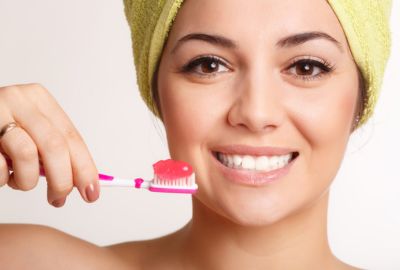
Floss daily
Floss daily removes food and plaque. This keeps your crown and natural teeth healthy. Thread the floss around your crown base.
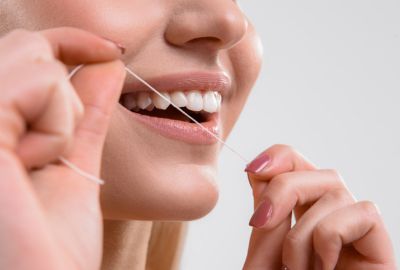
Use a gentle back-and-forth motion, and avoid snapping or forcing the floss, which can damage it or the surrounding gum tissue.
Choose a fluoride toothpaste.
It will strengthen your natural tooth under the crown. A soft-bristled brush (manual or electric) keeps your crown pristine.
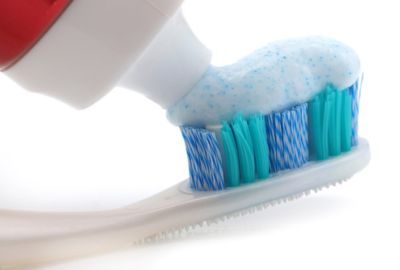
Bonus: An alcohol-free mouthwash can freshen your breath and reduce bacteria.

Taking care of dietary
Taking care of your dental crowns healthy also requires watching what you eat.
Many foods are still enjoyable for you. But it’s best to avoid those that might harm your crowns.
This includes hard foods like ice, candy, and popcorn kernels. They could cause chips or fractures.
Avoid chewy bread, chewy candies, and sticky foods. They could dislodge or pull on the crown.
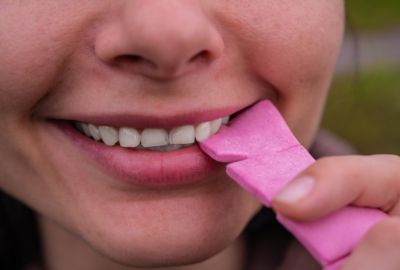
Instead, focus on a balanced diet, including options such as cooked vegetables, fruits, lean meats, and soft bread…
Taking care of lifestyle habits
Protecting your crown during sports
Enjoy sports without worry! A custom mouthguard acts as a cushion for your teeth.
It also protects your crown, preventing damage during active sports moments.
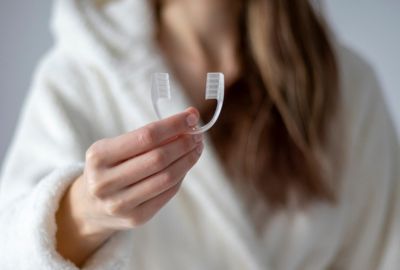
Grinding and clenching
Nighttime teeth grinding (bruxism) can wear down crowns.
Talk to your dentist about a custom night guard to protect your smile while you sleep.

Avoiding bad habits
Don’t use your teeth as tools or bite your nails. This will protect your crowns and keep your smile healthy longer.
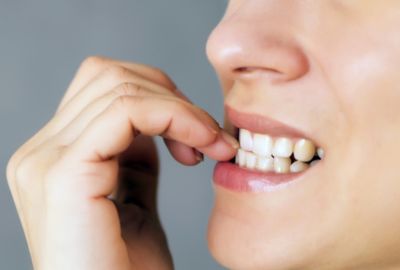
Taking professional dental care
Regular checkups and cleanings
It would be best to have routine dental visits for exams and cleanings. This is key to keeping your crowns in good shape.
This is true even if you take good care of them at home.
Our experience has shown that attending the dental every six months is essential.
This lets them check on your crown’s health. They can spot problems early and give you deep cleanings to remove plaque and tartar.
Addressing concerns promptly
Tell your dentist now if you notice any changes in your dental crowns. This could be chipping, cracks, loosening, or more sensitivity or pain.
Early intervention can help save more harm to the dental crown and increase its lifespan.
Ignoring these tooth issues could cause more involved and expensive repairs.
Understanding the dental crown procedure
First Visit
Examination and preparation
We examine the area to ensure it is suitable for a crown. Dentists may take X-rays to check for decay or damage to the root.
Local anesthesia numbs the area and removes any decay.
Tooth shaping
The area is filed down to create space for the crown. The amount of structure removed depends on the crown material used.
Impressions
We take impressions of the prepared area and the surrounding teeth.
These impressions are used to create a model of your teeth and then to fabricate the custom crown.
Temporary crown placement
A temporary crown is placed over the prepared area to protect it while the permanent crown is being made.
Second Visit
Temporary crown removal
The temporary crown is removed. The dentist checks the fit and color of the permanent crown during placement.
The dentist makes the adjustments and then cements or bonds the crown to the prepared area.
Same-day crowns (CEREC)
Some dental offices offer same-day crowns using CEREC technology. This involves taking digital impressions of the prepared area.
The office designs and mills the crown. This allows for a single-visit completion of the entire process.
Frequently Asked Questions
Can I whiten my dental crown?
Traditional whitening treatments won’t affect the color of your crown.
It’s a good idea to discuss whitening your teeth before getting a ceramic or porcelain crown.
Do this if you’re worried about color matching.
How can I determine if my crown is damaged?
Look for chips, cracks, or a rough texture on your dental crown. Contact your dentist right away if you feel pain or sensitivity.
Also, contact us if you see the crown moving. This will prevent further damage to your dental crown.
Can I get cavities under a dental crown?
The natural tooth structure beneath the crown is still susceptible to tooth decay.
Meticulous oral hygiene and regular dental visits prevent decay around the dental crown.
Does its insurance cover dental crowns?
Coverage varies by your insurance plan and the reason for the crown.
For example, restorative versus cosmetic. Check with your provider for details about the benefits of your dental crowns.
What’s the difference between a crown and a veneer?
A dental crown covers the whole tooth. A veneer is a thin shell bonded to the front for cosmetic improvement.
Your dentist can recommend the best option based on your specific issues.
Can you repair a crown with a slight chip?
Your dentist can sometimes repair minor chips or cracks in a dental crown.
More severe damage usually needs a new crown. It’s going to restore the tooth’s look and function.
Can I get a dental crown on a front tooth?
Yes, dentists can place crowns on any tooth, including front teeth.
Dentists often use materials like porcelain and ceramic for a natural look. This is so your dental crown looks its best.
Is there an alternative to a dental crown?
Options include fillings, inlays, onlays, or veneers. The choice depends on the extent of the damage and the tooth’s location.
Your dentist can recommend the best option for your specific dental issues.
What signs indicate that I need a root canal before getting a crown?
You may need root canal treatment if you have severe tooth decay, an infection, or damage to the tooth’s pulp.
The pulp is the inner part containing nerves and blood vessels. It’s best to have a root canal before placing a crown to restore the tooth.
Conclusion
In conclusion, you may have gotten a new crown or had one for years. The keys to healthy teeth are brushing and flossing. Also, it would be best if you had regular dental check-ups.
This routine ensures your Crowns endure as long as possible. Also, it’s essential to watch what you eat. This can also help protect your investment.
Remember, caring for your crowns now can cut the need for complex and costly procedures later.

Dr. Ronald Pham, DDS, is a Doctor of Dental Surgery who graduated from the USC Ostrow School of Dentistry in 2015. With over 8 years of experience in restorative dentistry, including dental implants, crowns, bridges, fillings, root canals…
Dr. Pham has restored the smiles of +2,000 patients and is committed to providing professional dental care focused on patient comfort. He achieves this by combining a welcoming space and state-of-the-art dental technology.

Guaranteed Smiles!
As a premiere dentist office in Orange CA, we will always make sure that your experience is memorable, friendly, and professional. We strive to meet your highest expectations in every way imaginable, from your very first interaction with our office staff, to the quality of treatment you receive. We don’t take our patients’ trust for granted, and will promise to over-deliver with your best interest in mind. So give us a call today, and experience our first-class service!
Insurance
Accepted
We proudly accept most dental insurance plans, and welcome cash patients as well. Call us today for more information.
$199
Special
New to our dental office? Take advantage of our New Patient special offer with x-rays, exam, and full report of findings.
Extended
Hours
Do you have an emergency? Need to see us a little later or earlier? Let us know. We can be flexible to meet your busy schedule!
